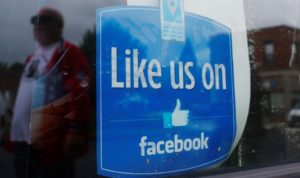 The Facebook data sharing scandal should come as a shock to no one. Yet, many people are incredulously asking “How could they do that?” Come on. In an age where very few hold a thought, feeling, or ordinary event to themselves rather than posting on social media, it was inevitable that this information would be shared with a company that would use it for someone’s benefit.
The Facebook data sharing scandal should come as a shock to no one. Yet, many people are incredulously asking “How could they do that?” Come on. In an age where very few hold a thought, feeling, or ordinary event to themselves rather than posting on social media, it was inevitable that this information would be shared with a company that would use it for someone’s benefit.
The Atlantic writes,
The action came just before The Guardian and The New York Times dropped major reports in which the whistle-blower Christopher Wylie alleged that Cambridge Analytica had used data that an academic had allegedly improperly exfiltrated from the social network. These new stories, backed by Wylie’s account and internal documents, followed years of reporting by The Guardian and The Intercept about the possible problem.
The details could seem Byzantine. Aleksandr Kogan, then a Cambridge academic, founded a company, Global Science Research, and immediately took on a major client, Strategic Communication Laboratories, which eventually gave birth to Cambridge Analytica. (Steve Bannon, an adviser to the company and a former senior adviser to Trump, reportedly picked the name.)
So perhaps we don’t have as much to fear from Russian meddling in our elections as we do from our use and obsession with social media. In a very real sense, we have only ourselves to blame. Who thought it was a good idea to publish your every thought, emotion, and action? Who thought it was a good idea to publish personal, intimate details of your life? Ever since the advent of credit cards, companies have had access to personal data but never to this extent. But can we really blame social media? Can we blame Cambridge Analytica? We gave them the data they craved. Whatever happened to the adage “keep your own counsel”? Or one of my favorites from the Corleone family, “Never let anyone outside the family know what you’re thinking.” Those were the good old days. Perhaps we could still learn from them.
